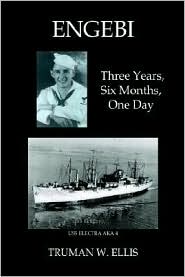Saturday, June 21: Mississippi Mud
SUCCESS STORY
by John M. Floyd
What is success, anyway? Wealth? Fame? Happiness? Security? More to the point, for our discussion, what is writing success? Is it measured in terms of readership, or sales, or critical acclaim? How about all of the above?
I think it’s none of the above. In my opinion, a writer is successful when/if he achieves what he set out to do. It might be bestsellerdom, but it also might just be publication, or even the completion of a novel or memoir or story. (Besides, even though it’s hard for non-writers to understand, getting published does not always lead to riches or celebrity, any more than writing always leads to publication.)
For the past seven years, I’ve taught a couple of courses at a local college on the subject of writing and selling short stories. As implied, the classes focus not only on the craft of writing but on marketing as well, and the assumption is that most writers want to be published. But not all of them do. For some the act of writing is enough, in and of itself. Some write for the pure fun of it, others write for therapy, still others write to document their life experiences, to create something meaningful to leave behind for their descendants.
 One of my friends, Truman Ellis, recently wrote an account of his adventures in World War II for his children and grandchildren, and had it self-published. (I must admit here that I am not a fan of self-publishing, but in this case it did seem to fit the author’s needs.) As things turned out, Truman was then invited to speak at dozens of libraries and VFW and American Legion meetings, and found — to his surprise and everyone’s delight — that his book appealed to an audience far beyond his family and friends. But my point is, Truman was a “successful” author long before his book began to sell well. He was a success when he completed the manuscript, because that — not recognition or financial gain — was his goal.
One of my friends, Truman Ellis, recently wrote an account of his adventures in World War II for his children and grandchildren, and had it self-published. (I must admit here that I am not a fan of self-publishing, but in this case it did seem to fit the author’s needs.) As things turned out, Truman was then invited to speak at dozens of libraries and VFW and American Legion meetings, and found — to his surprise and everyone’s delight — that his book appealed to an audience far beyond his family and friends. But my point is, Truman was a “successful” author long before his book began to sell well. He was a success when he completed the manuscript, because that — not recognition or financial gain — was his goal.
I can hear some of you now, saying Get real, Floyd — sure, it’s fine and noble to think that success is tied only to individual goals, but it’s also a little childish, and corny. No one considers you a successful writer unless you’re making some money at it and/or have reached a considerable audience with what you’ve written. My response would be that you’re right, that’s the traditional way we think of success — but it’s not the only way, and probably not the correct way.
I don’t even care much for the term “published writer.” You’re either a writer or you’re not. I know a few writers who aren’t yet published who are more talented than some who are. (If you ever doubt for a moment that this is true, try teaching a writing course and critiquing students’ manuscripts. Yes, some are terrible and many are mediocre, but a few are outstanding.) Once again, the definition of “successful writer” often depends on who’s doing the defining.
 Even if you haven’t set up specific goals, I believe that if you’re having fun with your writing, and if it fills a personal need that nothing else can, then you should think of yourself as a successful writer. You might never win the Pulitzer, or top Oprah or Bill Gates on the money list, or get an invitation to the White House … but I’ll let you in on a secret: neither will most of the rest of us. According to Stephen King, if your fellow writers depend only on their writing incomes for survival — critical success notwithstanding — they will probably not only not dine on steak, they might sit down regularly to an Alpo-and-noodles casserole.
Even if you haven’t set up specific goals, I believe that if you’re having fun with your writing, and if it fills a personal need that nothing else can, then you should think of yourself as a successful writer. You might never win the Pulitzer, or top Oprah or Bill Gates on the money list, or get an invitation to the White House … but I’ll let you in on a secret: neither will most of the rest of us. According to Stephen King, if your fellow writers depend only on their writing incomes for survival — critical success notwithstanding — they will probably not only not dine on steak, they might sit down regularly to an Alpo-and-noodles casserole.
But rich or poor, famous or not, you’re still a writer. And if that label is a source of pride for you, you’re successful in one of the most important of ways.
Keep at it.




















John,
I was happy when I finished writing my first book,
excited when a NY agent took it, ecstatic when Berkley Prime Crime gave me a three-book deal and, to a retired school teacher, a substantial advance. The release of the second book was as wonderful as the first, and I’ll be just as proud in October when book three comes out.
Success? I had that the first time my grandson introduced me to a friend of his and said, “This is my grandmama. She writes books.”
Like beauty, success frequently depends upon the eye of the beholder.
Fran, you’re obviously one of those talented AND fortunate folks who have achieved success on many levels but still have the right priorities in place. I wish you sincere congratulations on your literary accomplishments — and on your first career as well. I consider schoolteachers, along with policemen and physicians and a few others, to be the true heroes of our time.
Apologies if this appears twice. The system seems to be having a little trouble…
I love Fran’s story about her grandson. Reminds me of the various distinguished actors who appear on Sesame Street so their grandchildren will realize they are famous.
The heck with winning an Oscar, he SANG with Oscar!
Stanley Ellin, one of the great mystery writers, said that authors judge the success of their works by how closely they come to being the work the author intended to write. Maybe that’s another way of judging success?
Good post, John. I re-read one of my few published stories the other day, and it still touched me. That’s success. Not long ago, I re-read an old, oft-submitted, never-published story, and it affected me, too. Though I can see now some of the things that kept if from publication, there were other things about it that were good, and I think I learned a little doing it. Success of a different sort.
John,
This is an important column. We live in a society that bombards us with images of weatlhy succesfull people. Most of these people have never created anything. And you’re right about the true heros.
Fran’s story reminds me of my grand daughter who walked into our library and announced, “My grandmama wrote all these books.”
Many thanks to those of you who’ve voiced opinions today. Rob, I liked your (Ellin’s) definition of writing success better than the one I gave, and Melodie, I’m going to have to remember your granddaughter’s comment about the number of books you’ve written — I love that. And Larry, I know what you mean about rereading your own old stories (published and unpublished) and realizing how much you’ve learned about writing since. In my case, I’ve read a few of my really old still-unpublished stories and thanked God they never got published.
One thing I failed to mention is that I honestly believe that if you keep learning and keep trying, you will achieve success — maybe not stardom, but success — in whatever way you have defined it. Good writing will eventually find an audience.
Is it worth mentioning that “self-publishing” should not be confused with vanity publishing? There’s just no excuse for the latter in today’s world.
By the way, my father’s mentor was an educator who had had a pretty interesting life. (Frinstance, he was a supply officer under General Patton, until he arranged an emergency transfer before Patton found out about a major screw-up.) In retirement he wrote his memoirs, had them privately published, and gave them to his friends. I don’t think he sold a single copy, but everyone who received a copy treasured it. Success?
Good column? Yes, a success!! As for the writing/writer thing, I’ll quote myself “a writer is someone who is doing something. An author is someone who has done something.”